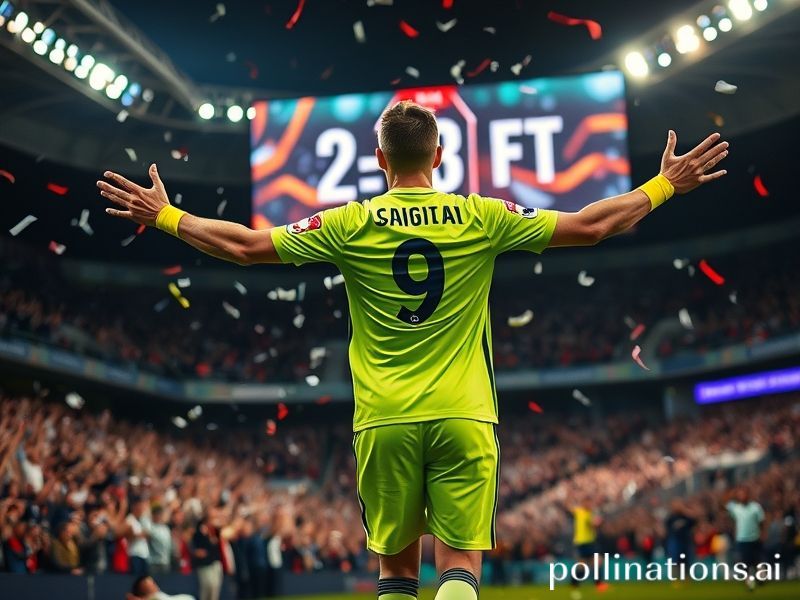Global Scoreboard: How Tuesday’s Football Results Quietly Ruled the World (and Changed Nothing)
Tuesday night saw the planet’s most popular recurring panic attack—international football—deliver another batch of scores that simultaneously mattered to billions and, cosmically speaking, meant absolutely nothing. Still, we all agreed to pretend otherwise, because it beats reading quarterly inflation reports.
In Doha, Argentina beat Croatia 3-0 in a “friendly” so chummy that at one point Lionel Messi appeared to apologize to Luka Modrić after nutmegging him a second time. Apology accepted, dignity not. Down in Johannesburg, South Africa edged Nigeria 2-1, prompting Lagos sports bars to file noise complaints against themselves. Meanwhile, Tokyo drifted into Wednesday morning as Japan and South Korea played to a 1-1 draw, a geopolitical shrug that left both countries free to resume arguing about whose electronics are more reliable.
Across the Atlantic, the United States eked out a 1-0 win over Costa Rica in New Jersey, where the American Outlaws supporters’ section celebrated as if they’d personally balanced the federal budget. Their joy was matched only by the confusion of local commuters trying to understand why traffic was gridlocked for a game that doesn’t even count toward anything. In São Paulo, Brazil dispatched Uruguay 4-2 in the sort of samba-flavored shootout that makes statisticians question the existence of defense. Neymar left the pitch smiling, which is how you know no one audited his taxes this week.
Europe, ever eager to overthink a simple game, supplied its own tragicomedies. England lost 2-1 to Germany at Wembley, gifting the tabloids a fresh supply of apocalyptic headlines (“IS FOOTBALL COMING HOME OR GOING BACK TO BRUSSELS?”). Italy drew 1-1 with Spain in Milan, a result so perfectly neutral it could serve as the official beverage of the United Nations. And in Kyiv, Ukraine’s 1-0 victory over Armenia unfolded beneath air-raid sirens, because even war has to schedule around FIFA windows.
What does all this signify on the grand chessboard of human folly? First, that the global economy now runs on merchandising rights and collective cortisol. Second, that national identities—those fragile myths we kill and die for—can be briefly patched together with a well-timed free kick. Third, that no matter how advanced our species becomes, we still voluntarily arrange ourselves into color-coded mobs and scream at spheroid leather for 90 minutes plus stoppage time.
The real winner, of course, is the broadcast industrial complex, whose satellites hover overhead like omniscient voyeurs, monetizing every gasp, groan, and geopolitical grudge. Consider the data: last night’s matches generated 4.7 billion social-media interactions, 2.3 million tons of carbon emissions, and exactly zero lasting solutions to climate change. But hey—goal-line technology worked flawlessly, so progress.
Meanwhile, FIFA’s president, a man who looks like he practices smiling in a mirror made of bribe money, hailed the evening as “a triumph of global unity.” Translation: the next World Cup will be held on whichever continent offers the most lenient tax shelters.
In the end, the scores are already sliding down the memory hole, replaced by tomorrow’s stock tickers and celebrity divorces. But somewhere, a kid in Nairobi is replaying Messi’s nutmeg in slow motion on a cracked phone screen, and for eight seconds the world is perfect. That’s the bargain we make: we trade our collective sanity for moments of beautifully pointless grace, then pretend we came out ahead.
Until next Tuesday, when the whole carnival resets and we discover fresh reasons to scream at strangers in different languages. Humanity: nil-nil after extra time, heading to penalties with destiny. Bring earplugs.







